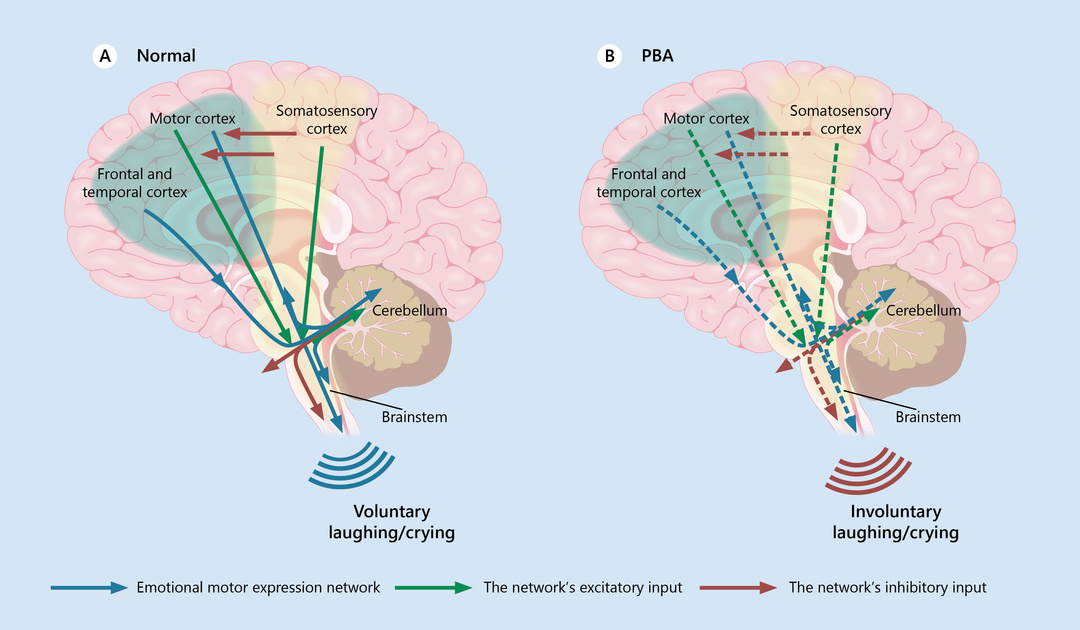Pseudobulbar affect (PBA) is a neurological condition involving involuntary, sudden, and frequent episodes of laughing or crying.
What is Pseudobulbar Affect? Recognizing Signs & SymptomsDifferentiating PBA from DepressionFAQs
Pseudobulbar affect, or PBA, is a neurological condition causing sudden, uncontrollable crying, and/or laughing that does not match how the person feels. Often misdiagnosed as a mood disorder, PBA is neurological condition that occurs because of an existing neurological disorder or disease, such as:

Research indicates PBA involves an injury to the neurological pathways that regulate the external expression of emotion. When neural pathways are disrupted, a person may involuntarily express emotions that are not appropriate to the situation.
Normally, the cerebral cortex (at the front of the brain) communicates with the cerebellum (at the back of the brain) to control our emotional responses to situations. But, sometimes, the cerebellum becomes damaged by lesions or nerve problems, disrupting communication between these two areas. PBA is thought to result from this miscommunication. Individuals who have PBA may laugh uncontrollably in response to something that is not funny or cry for no apparent reason.

Proposed brain circuitry involved in emotional expression and its hypothesized dysfunction in pseudobulbar affect (PBA).
Source: Pseudobulbar affect: the spectrum of clinical presentations, etiologies and treatments. Miller, A., Pratt, H., & Schiffer, R.B., Expert Review of Neurotherapeutics. January 9, 2014, Taylor & Francis Ltd, http://www.tandfonline.com
